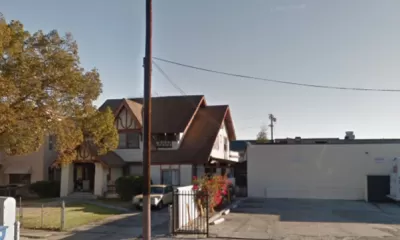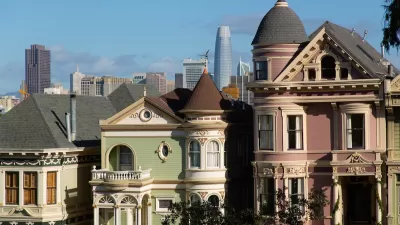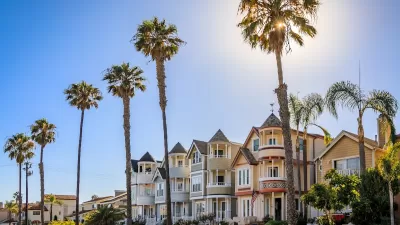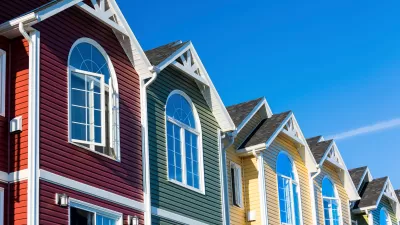California’s density bonus law lets developers skirt some zoning regulations to build multifamily housing.

A Los Angeles developer is frustrating residents by identifying single-family lots where the law allows for building multi-family housing, buying up the properties, and redeveloping them into apartment buildings, reports Liam Dillon in the Los Angeles Times. Housing advocates might hail this as a win for affordable housing, while preservationists and neighborhood groups argue Akhilesh Jha’s relentless pursuit of new projects is destroying historic neighborhoods and using legal loopholes for personal profit.
“While Jha’s ideas are far out of scale with nearby properties, he’s also not plopping the buildings in the middle of subdivisions. The projects are all within about half a mile of a major freeway with other multifamily housing and businesses nearby,” Dillon adds. Jha has won approval for his projects largely because the law, in many cases, favors housing production.
Jha uses California’s density bonus law, which “allows developers to build more dense housing on a lot in exchange for dedicating some of the units for low-income families,” to bypass many zoning codes and building regulations such as height limits and parking requirements. Jha also filed an application using the ‘builder’s remedy’ in the brief weeks when Los Angeles was eligible for such projects.
With only 10 percent or less of the units slated for low-income households, critics argue that Jha is disingenuously using “the most aggressive interpretation of state regulations” to build outsized projects that will strain local resources and bring down property values.
FULL STORY: This L.A. developer aims to tear down homes to build apartments where the city doesn’t want them

Study: Maui’s Plan to Convert Vacation Rentals to Long-Term Housing Could Cause Nearly $1 Billion Economic Loss
The plan would reduce visitor accommodation by 25,% resulting in 1,900 jobs lost.

North Texas Transit Leaders Tout Benefits of TOD for Growing Region
At a summit focused on transit-oriented development, policymakers discussed how North Texas’ expanded light rail system can serve as a tool for economic growth.

Using Old Oil and Gas Wells for Green Energy Storage
Penn State researchers have found that repurposing abandoned oil and gas wells for geothermal-assisted compressed-air energy storage can boost efficiency, reduce environmental risks, and support clean energy and job transitions.

Private Donations Propel Early Restoration of Palisades Playground
Los Angeles has secured over $1.3 million in private funding to restore the Pacific Palisades playground months ahead of schedule, creating a modern, accessible space that supports community healing after recent wildfires.

From Blight to Benefit: Early Results From California’s Equitable Cleanup Program
The Equitable Community Revitalization Grant (ECRG) program is reshaping brownfield redevelopment by prioritizing projects in low-income and environmental justice communities, emphasizing equity, transparency, and community benefits.

Planting Relief: Tackling Las Vegas Heat One Tree at a Time
Nevada Plants, a Las Vegas-based nonprofit, is combating the city’s extreme urban heat by giving away trees to residents in underserved neighborhoods, promoting shade, sustainability, and community health.
Urban Design for Planners 1: Software Tools
This six-course series explores essential urban design concepts using open source software and equips planners with the tools they need to participate fully in the urban design process.
Planning for Universal Design
Learn the tools for implementing Universal Design in planning regulations.
Ascent Environmental
Borough of Carlisle
Institute for Housing and Urban Development Studies (IHS)
City of Grandview
Harvard GSD Executive Education
Toledo-Lucas County Plan Commissions
Salt Lake City
NYU Wagner Graduate School of Public Service





























